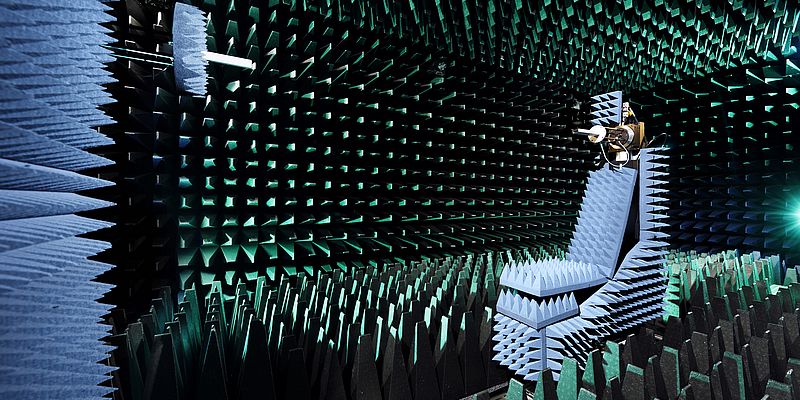
About Course
Wireless Communications Laboratory: Complementing the Theory by Practice (Wireless Lab Course)
Wireless communication (or just wireless, when the context allows) is the electromagnetic transfer of information between two or more points that do not use an electrical conductor as a medium by which to perform the transfer. The most common wireless technologies use radio waves. With radio waves, intended distances can be short, such as a few meters for Bluetooth or as far as millions of kilometers for deep-space radio communications. It encompasses various types of fixed, mobile, and portable applications, including two-way radios, cellular telephones, personal digital assistants (PDAs), and wireless networking.
in this Wireless Lab Course we will cover:
- Controlling VSG
- Transmitting Tone Signal
- Receiving Tone Signal
- Transmitting Modulated Tone Signal
- Quadrature Amplitude Modulation
- Pulse Shaping
- AWGN Channel
- Receiving the Signal
- wired and Wireless Connections
- Single Carrier Analysis
- Digital Modulations
join to Wireless Lab Course!
Course Content
Wireless Lab Course
-
0-0 Course Introduction
02:50 -
0-1 Controlling VSG
01:06 -
0-2 Transmitting Tone Signal
01:16 -
0-3 Receiving Tone Signal
01:43 -
0-4 Transmitting Modulated Tone Signal
02:17 -
0-5 Receiving Modulated Tone Signal
03:20 -
1-0 Lab 1 Introduction
03:15 -
1-1 Message Generation
02:37 -
1-2 Quadrature Amplitude Modulation
07:07 -
1-3 Pulse Shaping
05:46 -
1-4 AWGN Channel
09:40 -
1-5 Receiving the Signal
04:07 -
1-6 Received Signal Analysis
07:47 -
2-1 Wired and Wireless Connections
11:16 -
2-2 Single Carrier Analysis
02:50 -
3-1 Digital Modulations part 1
14:11 -
3-2 Digital Modulations part 2
19:56 -
4 Pulse Shaping
14:29 -
5-1 RF Front End Equipments part 1
13:56 -
5-2 RF Front End Equipments part 2
11:11 -
6-1 Wireless Channel part 1
12:53 -
6 Wireless Channel part 2
05:44 -
7-1 Signal Syncronization Part 1
17:10 -
7 2 Signal Syncronization Part 2
09:47
Student Ratings & Reviews
Very use practical tutorial session on understanding how wireless communication systems really work

